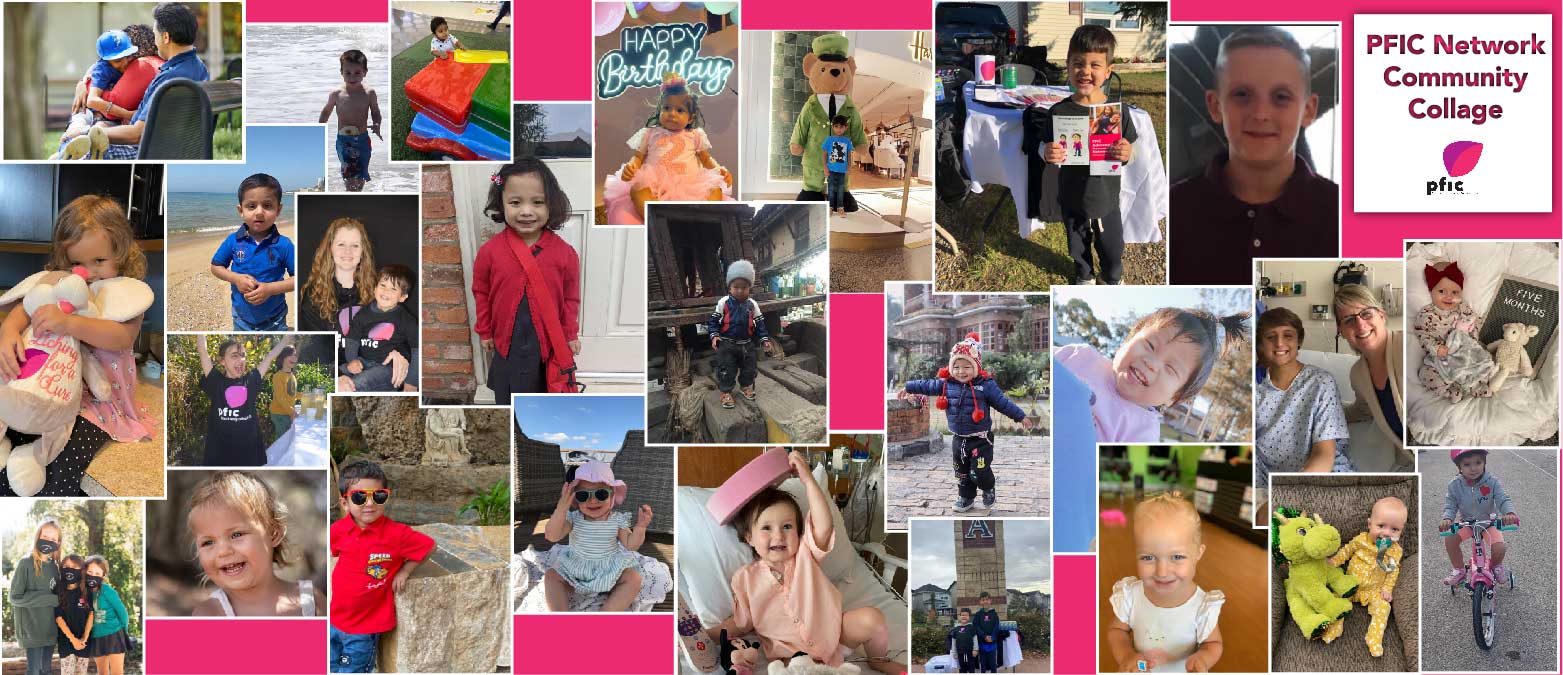Overcoming Overwhelm
As the year nears completion and much of the world enters a holiday season, pressure—both at work and at home—may be on the uptick, and your to-do list is likely growing. For some people, nothing sounds more thrilling than back-to-back holiday parties or a house crammed with out-of-town visitors. But if you are a PFIC patient or a caregiver to a child with PFIC, the addition of more chaos to your life may feel, well, a bit too chaotic. How do you tackle the essentials without succumbing to overwhelm? How do you open yourself to the parts of this season that nourish you and at the same time protect yourself from the aspects of it that leave you feeling drained?
A metaphor from the chronic illness community may be helpful.
Christine Miserandino, a chronically ill blogger, was sitting in a diner with a friend when the friend asked her what it’s like to be sick all of the time. Christine handed her friend a bundle of spoons and explained the experience of chronic illness along these lines. Each spoon that her friend was holding represented a unit of energy. If it’s a good day, you might have 12 spoons when you wake up. But everything you do drains you of spoons. For someone coping with illness, showering might take two whole spoons. Getting dressed might take one more. If you have to go to the doctor or work part-time, that could be four or five or six spoons. Because your spoons are limited and the number varies from day to day, living with chronic illness means you must ration carefully. Will you shower, or will you talk to your mom on the phone? Will you wash a load of laundry, or will you cook dinner? Will you attend that holiday gathering, even if doing so is likely to land you in bed for the whole of the next day?

If you are a PFIC patient yourself, you likely understand this rationing of energy. Perhaps you have crashed more than once into the painful reality that you can’t do everything. Maybe the things that once felt like no big deal are, for now, off the table. Living with itching, fatigue, pain, anxiety, or uncertainty decreases your available bandwidth; you simply have fewer spoons. If you are the caregiver for a child with PFIC, then you, too, are confronted with challenging limitations. You may be struggling to cope with sleepless nights, steep medical bills, anxiety, and the very particular needs of your child for just the right foods or an ever-changing array of medications. All of this takes spoons—a lot of spoons. And all of us, whether healthy or ill, are finite—painfully, infuriatingly, undeniably finite.
Resistance to the reality of our finitude is a recipe for overwhelm and burnout. It’s tempting to pretend to yourself or others that you can do it all. Tempting but exhausting.
If you find yourself stuck in a state of overwhelm and exhaustion, begin by acknowledging it: “This is a lot, and I’m completely drained.”
Next, consider taking an inventory of the places that your energy is going. This includes the things you do (working, paying bills, feeding yourself or your family, managing medications, attending social events, etc) as well as any mental or emotional activity, like worrying about the future, fretting over the judgments of others, replaying an unpleasant interaction you had with someone over and over in your mind, ruminating about the state of your relationships, or railing inwardly about how messy your house is.
Once you identify that you’re using more spoons than you actually have and get a sense of where these spoons are going, you can begin to figure out which of these energy expenditures are serving you (and your child, if you’re a PFIC parent) and which are not. Odds are, you don’t have the option of hoarding all of your spoons and refusing to do anything ever again. But all of us have something we can let go of. Do you actually want to attend that six-hour holiday gathering at your great aunt’s house? Does it feel worth it to you to maintain every holiday tradition? Do you want to smile and nod through yet another painful conversation with this or that person? Is it helping your relationship to ruminate about it, or might something else feel more healing?

Once you find something that you are doing that drains you but isn’t strictly essential, you’re in a place of power. You have the power to approach this differently—to conserve this particular spoon. Perhaps there is something that you can delegate to a family member or friend or outsource to a housecleaner or other paid helper. More often, though, conserving spoons will mean setting a boundary with another person. “I’d love to come to dinner at your house, but I can only stay for two hours.” Or “I’ve received plenty of medical advice, and I’m not interested in hearing more.”
When we set a boundary with another person, we are setting a boundary with ourselves. We are, for example, committing to leave that dinner party at the two-hour mark, even if it feels like an awkward time to go. We are committing to walk away from a conversation that feels unhelpful or triggering.
We can also set boundaries that don’t involve other people at all. Here’s one that can be helpful: “There is a lot of uncertainty and heartache in my life, and I am allowed to worry about all of it, but I’m not going to do it all the time. I’ll set aside a ten-minute worry window every day. If I find myself ruminating or worrying at other times, that’s fine; I’ll just take a deep breath and remind myself to temporarily set those thoughts down and come back to them later during my worry window.” (If you set this boundary with yourself, be sure to follow through and actually give yourself your daily worry window, ideally not right before bedtime.)
When we are exhausted, overwhelmed, and depleted of spoons, it’s natural to find ourselves in a state of reactivity. We react to one problem after another, always in crisis mode. By consciously conserving even just one or two spoons, you interrupt this pattern. You open up a small space in which something new is possible—a space in which you can creatively respond to the challenges you face.As we enter this holiday season, we at the PFIC Network wish you just that: space around your challenges. We wish you all of the things that make this exhausting journey a bit more bearable: love, support, laughter, rest—and of course, an extra spoon or two, as well as a few tasty holiday treats.
